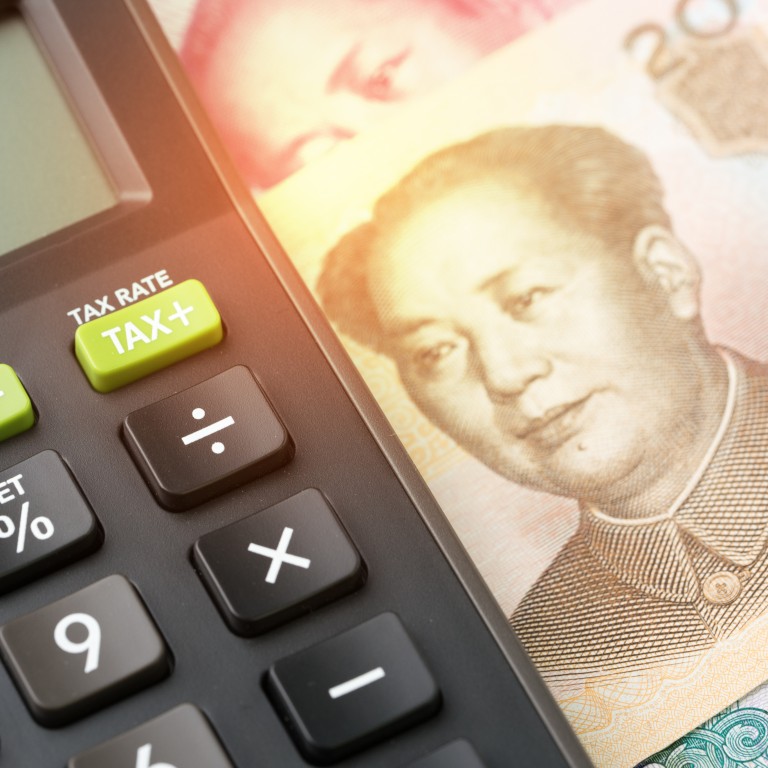
Explainer | China’s expat tax system: who pays and how does it work?
- Recent plans by Beijing to reform tax exemptions on expatriate employee allowances have thrown the spotlight on China’s tax regime for foreigners
- Individuals who are domiciled in the mainland, or have been living in the country for a total of 183 days in a tax year, are considered tax residents
China’s expatriate community is growing thanks to the nation’s central position in the global economy.
The seventh national population census revealed the number of foreigners living in China for more than three months rose to 845,697 in 2020, from 593,832 10 years earlier. In the first half of 2021, the National Immigration Administration approved 380,000 resident permits for expatriates.
Here is what expat employees need to know about China’s individual income tax (IIT) regime:
Who needs to pay individual income tax in China?
Chinese law stipulates that individuals who are domiciled in the mainland, or live in the country for a total of 183 days in a tax year, will be categorised as tax residents. However, only after staying in the country for six straight years, without exiting for more than 30 days, will global income be taxed.
Non-residents pay taxes only on the income earned in China.
China’s expat tax reprieve welcomed, but concerns remain
“Foreign experts” recognised by the Chinese government are exempt from taxation, including United Nations staff and those working on UN aid projects. The same rules apply for people working in China under bilateral cultural and educational exchange programmes that are paid for by foreign parties.
What kind of income is taxed in China?
The IIT levy is applicable to people earning wages, salaries, pay for authors or personal services, plus income from royalties, business operations, interest, dividends and bonuses. Revenue from property leasing or transactions, as well as contingent income, is also taxed.
What is China’s individual income tax rate?
China implements a seven-tier progressive individual income tax system:
| Grade | Annual cumulative taxable income (yuan) | Tax rate |
|---|---|---|
| 1 | <36,000 | 3% |
| 2 | 36,000-144,000 | 10% |
| 3 | 144,000-300,000 | 20% |
| 4 | 300,000-420,000 | 25% |
| 5 | 420,000-660,000 | 30% |
| 6 | 660,000-960,000 | 35% |
| 7 | >960,000 | 45% |
Do expats get any tax breaks in China?
Expatriate taxpayers are entitled to special deduction items, including housing rental of up to 1,500 yuan per month, children’s education of up to 1,000 yuan per month, and continued learning of up to 400 yuan per month, until the current non-taxable benefits are removed.
At the end of 2018, Beijing said tax breaks for expat allowances, including those available for language training, housing, and children’s education would be phased out at the beginning of 2022 after a three-year transition period.
Foreign firms fear business will never be the same in China
But amid pressure from foreign businesses, the Ministry of Finance and the State Taxation Administration announced in late December the tax breaks will be extended for two more years.
Meanwhile, year-end bonuses will not be included solely in the month they are offered, but split evenly across 12 months, before 2024. Equity incentives offered by listed companies will be taxed separately until the end of this year.
What about tax breaks at the local municipal level in China?
Some municipal governments provide local tax incentives to lure overseas talent.
Nine cities in the southern province of Guangdong, including Guangzhou, Shenzhen, Zhuhai, Foshan, Huizhou, Dongguan, Zhongshan, Jiangmen and Zhaoqing, provide a subsidy to cover the gap between the domestic tax rate and the much lower one in Hong Kong.
The subsidy only applies to “high-end” overseas talent living in the region before the end of 2023, such as innovative researchers and management staff.
Expatriates who live in Hainan for more than 183 days a year are subject to a three-tier progressive system, with rates of 3 per cent, 10 per cent and 15 per cent before 2035.
A similar subsidy also exists in the Shanghai free-trade zone.

